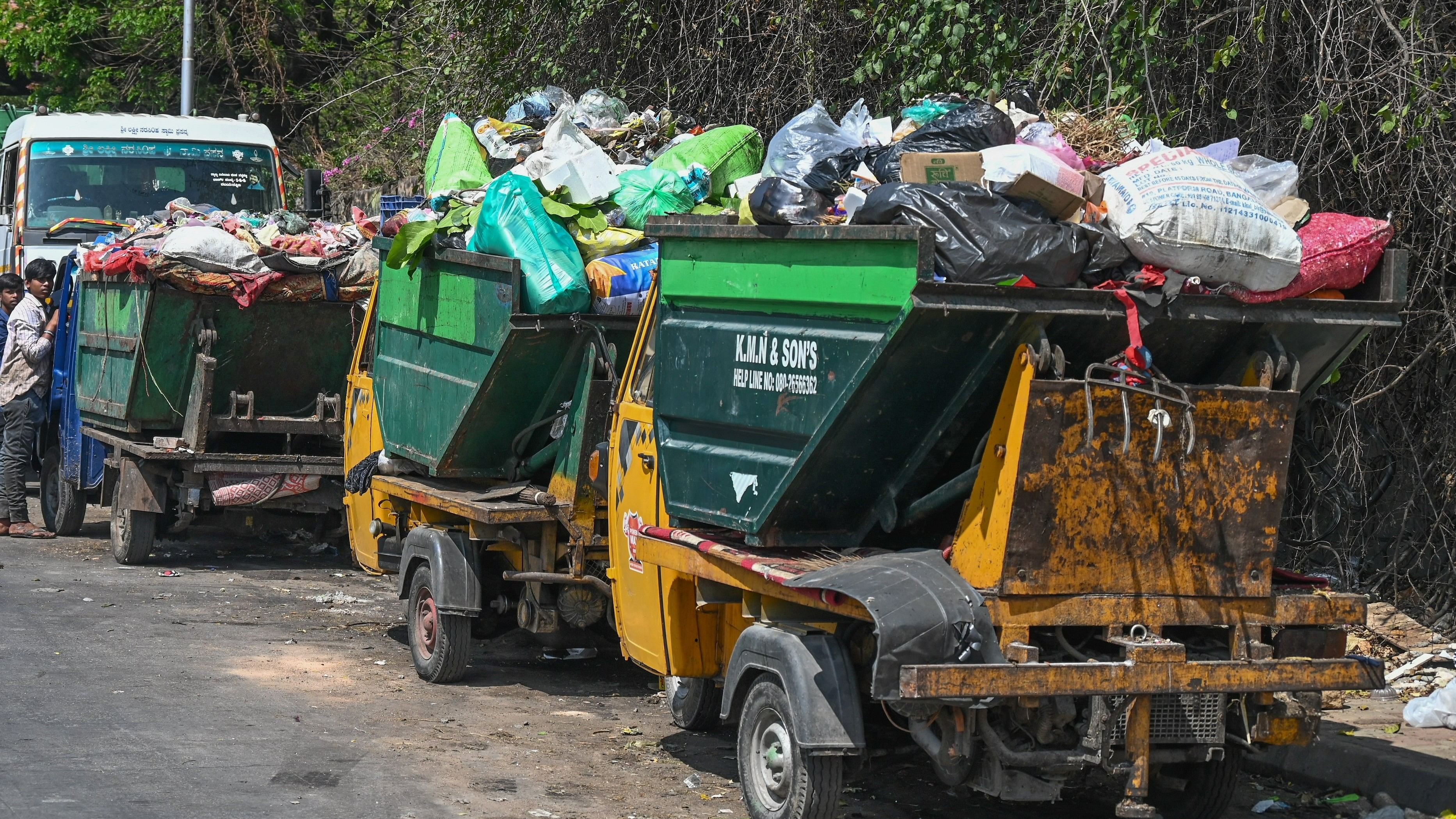
The Palike plans to send about 1,500 tonnes of waste to the designated locations.
Credit: DH PHOTO/S K Dinesh
Bengaluru: Bengaluru’s civic body has identified four large land parcels on the outskirts to process the nearly 6,000 metric tonnes of municipal waste that the city generates daily.
While the ambitious proposal hopes to do away with landfill sites where a large volume of waste is currently dumped, the plan may get a fair share of criticism for not promoting ward-level or in-site processing or composting of waste.
The four places are located in Doddaballapura taluk (where Terra Firma was once located), Mandur in the east (Mahadevapura assembly constituency), Bidadi in the west and Gollahalli on Bannerghatta Road.
It’s noteworthy that two of these places were used as garbage dump yards but shut down in 2014 (Mandur) and 2016 (Doddaballapura) during Siddaramaiah’s first tenure as chief minister, following protests from villagers.
The remaining two are new garbage spots.
While the 100-acre land in Gollahalli belongs to the Public Works Department and is currently in the custody of Nandi Infrastructure Corridor Enterprises (NICE), the Bidadi land is owned by the Karnataka Power Corporation Ltd (KPCL), where it is setting up a new waste-to-energy (WtE) plant.
In all likelihood, the Bruhat Bengaluru Mahanagara Palike (BBMP) may send about 1,500 tonnes of waste to each of the four locations once the new facilities such as the biomethanation plant, processing infrastructure and waste-to-energy plant come up.
Harish Kumar, Special Commissioner of the BBMP’s solid waste management division, said that the proposal had been shared with the government for approval.
“In each of these places, we will set up different facilities to process the waste. Only the inert materials will be sent to the landfill but that will not be more than 15 per cent of the total waste generated in the city. This can handle the city’s garbage for the next 30 years,” he told DH.
'Contrary to HC order'
Experts, however, say the BBMP’s new plan is a “retrograde” move and runs contrary to the High Court orders.
Ajesh Kumar Shankar, who was the lead counsel before the High Court of Karnataka for enforcement of the solid waste management rules, said multiple court orders had ruled in favour of a decentralised approach to processing waste.
“The BBMP must provide captive units for processing waste at the ward level. The focus should be on promoting in-site composting of wet waste,” he said.
A senior BBMP official said the idea was “very theoretical” but no resident would agree to open a waste-processing plant next to their house. He recalled how the BBMP struggled to optimally use waste-processing plants it built almost a decade ago.
Cut-off box - Huge financial implications Very few operators in the country are capable of handling large volumes of waste Garbage disposal may be held as ransom if demands are not met Goes against the decentralised approach to waste management